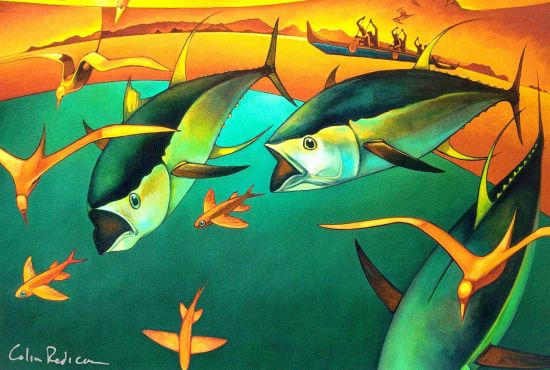 |
||
|---|---|---|
| Current Projects | ||
|
Last Updated January 2022 |
||
| Presentations | ||
 |
||
|---|---|---|
| Current Projects | ||
|
Last Updated January 2022 |
||
| Presentations | ||
Overview |
||
Our research addresses the habits and habitats of far-ranging marine vertebrates (seabirds, turtles, cetaceans, predatory fishes) and the conservation of their oceanic food-webs and ecosystems.
More specifically, our lab focuses on understanding how upper-trophic marine predators forage and migrate across patchy oceanic environments, and how these habitat associations make certain species more susceptible to anthropogenic impacts, such as plastic ingestion and fisheries bycatch. This requires an integrated research approach that combines arge-scale information on spatial / temporal oceanographic variability, with finer-scale studies of habitat associations from tracking and vessel-based surveys.
In particular, our research focuses on four broad topics:
Dynamic Biogeography What physical and biological factors structure marine communities and delineate the ranges of pelagic species? How do inter-annual and longer-term climatic changes affect the persistence of dynamic oceanic habitats? How do inter-annual and longer-term climatic changes affect the structure of marine communities?
Foraging Ecology of Far-ranging Upper-trophic Predators What physical mechanisms define predictable foraging grounds of pelagic predators? How do pelagic predators search for patchy prey in a dynamic seascape? How does resource dispersion affect the foraging effort and reproductive success of pelagic predators?
Spatially-explicit Pelagic Conservation How to quantify the spatial / temporal overlap of protected species with threats? How to design management actions that integrate knowledge of species natural histories and oceanography? How to design and evaluate pelagic MPAs in the context of a dynamic oceanographic environment?
The Value of Marine Megafauna as Biological Indicators How do pelagic predator dispersion, diet, and demography reflect marine resource distribution and abundance? How do pelagic predator plastic ingestion and pollutant loads reflect marine pollution trends? How
will species distributions and community structure change in response
to the warming of the global ocean?
Back Home |